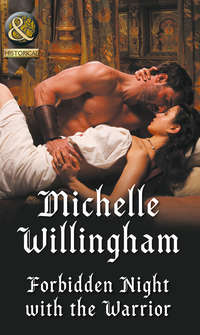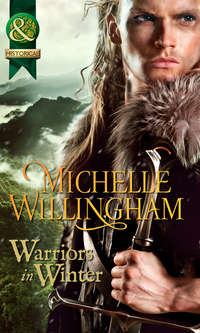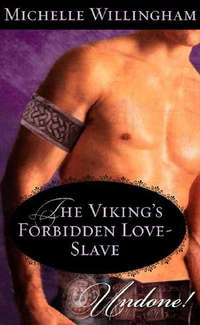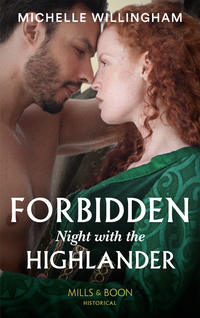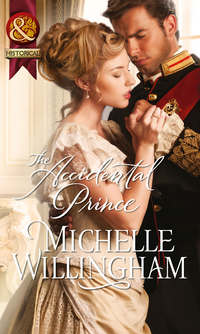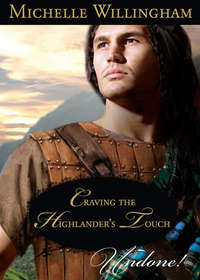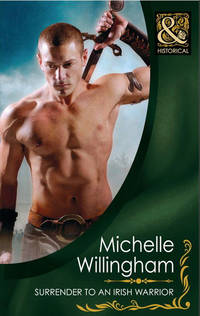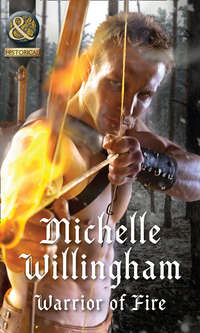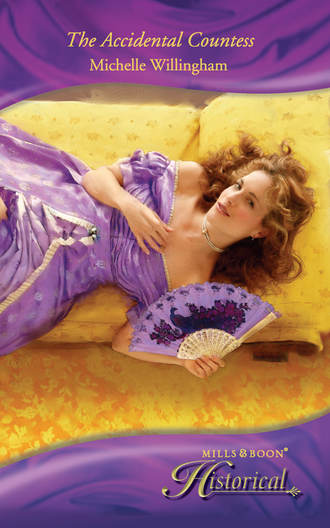
Полная версия
The Accidental Countess
—Emily Barrow’s Cook Book
Later that night, his intense headache deepened into a dull throbbing. Sleep would not come. Eyes dry and nerves raw, Stephen pushed back the coverlet. His bare feet padded across the Aubusson rug before his knee slammed into a mahogany blanket chest at the foot of the bed. Cursing, he fumbled his way towards the fireplace.
A large mirror hung above a dressing table. He could barely make out his own features in the shadows. Lighting a candle, he studied the man staring back at him. At one time, he had a well-ordered, predictable life. Now, a haggard expression gazed back at him. An angry red scar creased a jagged line across his bare chest, a knife wound he didn’t remember. The blow to his head was a recent wound, possibly from thieves or worse. Yet someone had saved his life and sent him here.
He didn’t know himself any more.
The uncertainty unnerved him. Every time he searched his memory for a fragment of the past events, his mind shut down. He didn’t remember his supposed marriage, or anything leading up to it. It was as though an invisible wall barricaded him from the truth.
He was about to retreat when his gaze narrowed on a black symbol edging the back of his neck. Turning, he tried to distinguish what it was. Though he could not see the entire design, he recognised it as a tattoo.
Why? When had he got it? Never in his life would he have considered such a thing. Now, the indelible ink marked yet another facet of the mysterious past.
He tried in vain to see more of the emblem, but from the awkward angle, he could not see the full pattern. Stephen stepped away from the mirror. He would find the answers he needed, regardless of the effort.
Emily held some of those answers. She was wary of him, and well she should be. Likely she had lied to him to protect the children, using him for a place to stay.
He simply couldn’t believe that he’d married her, even though they had been friends as children. More than that, if he were honest with himself. Like Eve, she had tantalised him with the sweetness of a first love. Then his father had found out and had forbidden him to see her again.
How had their paths crossed after so many years? And why couldn’t he remember?
A fretful noise caught his attention. Stephen paused a moment, then opened the door to the corridor. The whimpering grew softer, then stopped. Was it an animal? He frowned, wondering what else had been brought into his house without permission.
As he passed down the hallway, he heard the sound coming from a bedchamber. He opened the door and inside saw a bundled shape beneath the covers. It was too small to be Emily, and as his vision adjusted to the dark, he recognised the boy he had met earlier. What was his name? Ralph? Roger? The child’s face was buried in the pillow, his small shoulders shaking.
Stephen’s throat constricted, but he did not move to comfort the child. It was as though his feet were locked in place. He was not the child’s father, nor his guardian, regardless of what Emily might claim. It was not his place to interfere. And it was better for the boy not to expect comfort or coddling from others.
His own father had taught him just such a lesson until he had learned how to suppress tears. The future heir could not cry or show any emotion. His father had beaten it out of him until Stephen had become a model of composure.
When the boy’s sobbing eased into the heavy breathing of sleep, Stephen took a step forward. He lifted the coverlet over the child, then left as silently as he had come.
The sun had not yet risen, but the sound of rain spattering against the stone house brought Emily a sense of comfort. The scullery maid Lizbeth lit the fire, and a flickering warmth permeated the room while Emily mixed the bread dough.
She knew the servants viewed her with a mixture of curiosity and discomfort. A baron’s daughter should never venture into the kitchen to work. But it was a deep need within her, to be useful. Giving orders to the household staff made her uneasy, for she had practically been a servant herself until recently.
She had done her best to keep the family together after Papa had died. Her brother Daniel’s business failings were a constant source of anxiety, but Emily had learned to suppress her criticism. None of their relatives would help them, not after—
She closed her mind, not wanting to think of the devastating scandal. She had done what she had to, bartering at the marketplace after Daniel had gambled away their finances.
He’d been grieving for his wife, a man out of his head. She’d forgiven him for it, even if it meant sacrificing her own marriage prospects.
But now she was married.
Emily kneaded the bread dough, letting its rhythm sweep away her fears and troubles. The familiar yeasty smell eased her tension, and she let the mindless task grant her time to think.
Whitmore was going to get rid of her. She was torn apart, so angry with him for his infidelity and for abandoning Daniel. And yet, she needed his protection for the children. She rested her forehead upon a floured hand. Somehow, she had to make the best of this.
Silently, the scullery maid began frying sausages for the morning meal. With a plain face and a figure the size of a barrel, Lizbeth always had a cheerful smile. Emily had liked the maid from the moment she’d met her.
‘You’ve horrified him, you know,’ Lizbeth remarked as she flipped the sausage links. ‘Mr High-and-Mighty.’
‘The Earl?’
‘No, my lady.’ Lizbeth blushed. ‘I mean Farnsworth, the butler. He’s told the master that you sent Henri packing.’
‘Good.’ Emily didn’t care if Stephen knew about her dismissing the cook. The ill-tempered man had been robbing the household blind over the past few months, claiming ridiculous costs for food. They were well rid of him.
‘And you needn’t worry about the cooking, my lady,’ Lizbeth added. ‘Mrs Deepford and myself will take care of it until the new cook arrives.’
‘Thank you, Lizbeth.’ Emily relaxed slightly. Her hasty offer to cook for the household was impossible, she knew, though she had enjoyed seeing Farnsworth’s look of horror. ‘I am sorry to have caused you both more work.’
‘Oh, no, it’s grateful we are. Henri should have been sacked long ago.’
A small part of Emily worried that she had overstepped her bounds. The Earl might not appreciate her interfering with staff members, not with her own precarious position. She needed to apologise for her cross words earlier.
‘Have you heard anything else?’ Emily asked Lizbeth. ‘From the Earl, I mean. Has he remembered anything?’
‘No, my lady. I’ve not heard that he has.’ Lizbeth cracked an egg into a bowl.
The bell sounded, and Lizbeth jumped up. ‘It’s his lordship. He’ll be wanting his breakfast tray.’
‘I’ll take it,’ Emily offered. She wanted to speak with him about the children. The heaping platter of delicious food could improve his temperament while she explained why throwing their family out into the streets would be a very bad idea.
Her stomach grumbled, but she ignored it. She had eaten a slice of toasted bread and a cup of tea, which was enough for her.
By the time she finished climbing the back staircase leading to the Earl’s bedchamber, she was out of breath. The heavy tray made her arms ache, but she pressed onwards. Knocking lightly, she heard him call, ‘Enter.’
The Earl was seated in a wingback chair, reading The Times. He wore charcoal trousers, a dark blue frockcoat, pinstriped waistcoat and a white cotton shirt. His dark cravat was tied in a simple knot without any fuss. The shadow of a beard lined his cheeks, and his intense gaze rested upon her with interest.
His hair was wet, drops of water glistening at his temples. He’d taken a bath, she realised.
A slight shiver ran through her at the thought of him sinking into a tub of water, his muscled arms resting upon the edge. She had seen for herself the hard ridges of his stomach, the reddened scar across his pectorals.
A wicked image arose, of soap sliding over those muscles, of what it would be like to touch him. What it would be like, if he lowered his body upon hers, until she yielded to him.
Like before…
An unbearable loneliness caught her. He had kissed her on the night he’d left, as though he would never let her go. Now it was as if that man had never existed.
An invisible fist struck her in the stomach, the hurt rising. When he’d arrived back at Falkirk, her first instinct had been to rush towards him, to hold him tight and thank God that he was alive.
But he didn’t know her any more. He’d broken promises and betrayed her with another woman. She couldn’t let go of that.
She blinked back the emotions threatening to spill over. Whitmore didn’t feel anything towards her any more, and she didn’t know if he ever would again.
‘Are you planning to set that down or continue staring at me?’
Her face flamed, but she managed to lower the tray. ‘Your breakfast, sire.’ She bobbed a false curtsy.
‘I would prefer “my lord”.’
Emily had meant the address as sarcasm, but clearly the Earl did not recognise it. Her temper flared. ‘Will there be anything else? Shall I bow down before you and lick your boots?’
‘Perhaps later.’ The interest in his voice made it sound as if he didn’t mind that idea at all. She whirled and marched towards the door.
‘I am not finished with you yet,’ he said. She sent him a look filled with venom, but his attention remained on The Times. He lifted a pair of spectacles to the bridge of his nose. She had never seen them before, never knew he wore them for reading. It reminded her that this was not a man who could be easily fooled.
Proper, stiff and steadfast in his beliefs, he had become every bit the shadow of his father, the Marquess. Her nerves coiled in her stomach at the thought.
‘Would you care for tea?’ she asked, fighting to keep her voice steady.
He lowered the paper and regarded her. ‘Is it poisoned?’
His overbearing attitude made her consider dumping the pot over his head. ‘You won’t know that until you are dead, now, will you?’ She smiled sweetly and poured the tea into a china cup. ‘Milk and sugar?’
‘I drink mine black. There’s less chance of you adding something to it.’
‘Unless I already have,’ she dared, offering him the cup. Perhaps he’d choke on it.
His expression remained neutral, and he refused to take the cup. ‘You drink first.’
‘I haven’t poisoned it,’ she insisted.
‘Drink.’
The arrogant tone of his voice annoyed her, but she obeyed. The hot tea tasted of rich spices with a heady aroma. ‘There. Are you satisfied now?’
‘Not quite.’ The Earl set the newspaper aside and gestured toward the food. ‘I want you to taste everything that is on the tray.’
‘I am not hungry.’
At those words, he sent her a look that said he knew she was lying. ‘You look as though you haven’t eaten properly in weeks. You’re too thin. I won’t have the servants believing I don’t feed my own wife. If that’s what you are.’
‘I don’t care what they think.’
‘But I do. And if you wish to remain in this household along with the children, you will heed my wishes.’
There. The threat was out. He really could make things worse for her, forcing her and the children to leave. And then where would she be? She could not support the children, nor give them a home.
Emily’s cheeks flamed, but she stabbed a sausage with a fork. She wished it were one of his more delicate parts.
She took a bite of the eggs, savouring the flavor. Oh, sweet saints above. She closed her eyes for just a second, enjoying the food. Perhaps with a bit more salt or even chopped pieces of bacon, the eggs would taste even better. Ideas for cooking recipes swarmed through her mind as she enjoyed the taste of Elysium, courtesy of His Arrogance.
The sound of a ringing bell broke through her moment. Emily opened her eyes, but the Earl gave no hint as to why he had summoned the parlour maid.
‘I did not spit in your food.’
His eyes held not a trace of humour. ‘I never said you did.’
She pushed the plate towards him, but the awkwardness continued, making her wonder what else he wanted. ‘You may eat,’ she said. ‘As you can see, I am still alive.’
He made no movement towards the food. He stared at her, his gaze questioning. His eyes were the soft grey of a London morning, his mouth firm and stoic. She had thought him to be a handsome man at one time. His features were strong, as though carved from stone.
He was a statue now. A man with no feelings, who never revealed a trace of what he was thinking.
Why had she let herself fall prey to his promises? The Earl had rescued her from a crumbling, debtridden estate. He’d sworn that he’d find her wayward brother and pay off Daniel’s debts. She had been so infatuated, she hadn’t stopped to wonder why.
A knock sounded, but instead of a maid, the disapproving eyes of Farnsworth frowned down upon her. Emily sensed the butler’s silent censure of her clothing and her mannerisms. She was supposed to behave like a Countess, not a servant. Emily straightened, though it would do nothing to change Farnsworth’s opinion of her.
‘Bring Lady Whitmore a plate of her own. And more tea,’ Whitmore added.
‘No, really—I don’t need a thing.’
His dark glare silenced her. When the butler had departed, he folded his arms across his chest. ‘We must come to terms on a few things. I give the orders, and you are to obey them.’
Did he think he was the King of England? ‘Yes, your Majesty.’
He, apparently, found no amusement in her mockery. ‘Furthermore, when Farnsworth brings up the tray, you are to eat every morsel of food.’
‘And if I don’t?’
‘You wish for the children to eat, do you not?’
At his implied threat that he would refuse them food, her fury exploded. ‘You wouldn’t dare starve innocent children on your own ridiculous whims.’
‘They aren’t my children,’ he pointed out. ‘And if you want me to house them, clothe them and feed them, you will obey.’
Stephen saw the look of fear in her eyes and felt a trace of guilt for making the threat. Not too much, however. From the looks of it, Emily had not eaten a full meal in far too long. If a false implication would encourage her to eat, he had no qualms about exaggerating.
Her cheekbones stood out in a face so delicate, it could have been crystal. Her eyes were large, a haunting whisky brown. A stray tendril of golden hair rested against her cheek where a smudge of flour marred her skin.
‘They are your responsibility,’ she said.
Farnsworth returned with the tray a few minutes later. Emily ate, her eyes blazing with murder. And yet, he could see the desperation in her carefully controlled appetite.
‘I have some questions I want you to answer,’ he began. ‘Starting with our wedding day.’
She gave her full attention to the eggs, behaving as though she hadn’t heard him. Stephen reached out and took her left hand. Upon her third finger rested the family heirloom ring. A large ruby glinted from the gold band. He rubbed his finger across the stone, her fingers cool within his palm.
‘I don’t remember the marriage ceremony at all. I don’t even remember giving you this ring. For all I know, you stole it.’
She glared at him. ‘Do you want it back?’
‘Possibly.’ He stared at the ring, trying to piece the memory together. Emily struggled to pull her hand away, but he held it fast.
‘Tell me about our wedding.’
‘It snowed that day,’ she whispered. The look upon her face was of a woman lost.
‘Did we have feelings for one another?’ he asked quietly.
At that, Emily choked. She covered it with a laugh, but he could see the shadow of hurt behind her eyes. ‘You adored me. We married on impulse.’
‘I mean the real reason, Emily.’
She studied her breakfast again. ‘I don’t suppose I truly know the answer. I thought you cared for me.’ Pain silhouetted her words. ‘I was wrong.’
‘Did I compromise you?’ he asked, running his thumb over the edge of her hand. Her palms were rough, like a servant’s.
Emily jerked her hand away. ‘No. And I’d rather not talk about it, if you don’t mind.’
‘Why did you marry me?’ What was this sadness in her eyes? She kept up such strong defences, he couldn’t see past the anger to understand it.
Emily set her plate aside, ignoring the remainder of the food. ‘I had my reasons.’ Upon her face he saw veiled embarrassment. She had spoken of feelings between them. Had he ever claimed to love her?
She was pretty, as she’d always been. Outspoken, with a tongue like a razor. And if she’d married him on such a sudden whim, her impulsive behaviour hadn’t changed.
‘I must return to London,’ he said, changing the subject. He kept detailed ledgers in his study. If there were answers to be had, he would find them there. ‘As soon as I am healed, you will journey with me.’
‘No!’ She caught herself and amended, ‘That is, I’d rather not.’
The alarm in her voice alerted his suspicions. ‘Why are you so afraid of London?’
‘Your father won’t want to see us. And the children need me here.’ She fumbled with her hands as though searching for a stronger excuse.
‘I will hire a nursemaid. In fact, I have already ordered Farnsworth to procure several for you to interview. I cannot believe the man has not already done so.’
‘I hired a wet nurse for the baby. Anna takes care of both Victoria and Royce.’
‘Royce needs a tutor, as well as a nursemaid.’ When she made no reply, he switched his tactics. ‘Don’t you think my family will wonder why I haven’t brought my wife with me?’
Her cheeks turned scarlet. Her reluctance had to mean they weren’t married. He was sure of it.
But she startled him by lifting her chin. ‘I don’t care what they think. I won’t go to London with you. Not now. Not ever.’ She rose to her feet and strode from the room. The door slammed shut behind her.
She was afraid. And unless he was very much mistaken, Stephen had a grave feeling that his wife knew far more about the night he had disappeared than he’d suspected. It did not bode well for their future together.
Chapter Three
Cakes served at tea time must always be light and delectable. A hostess should smile and greet her guests with a gracious heart.
—Emily Barrow’s Cook Book
Later that morning, Dr Parsons checked the bandages and nodded his approval. ‘Your wife has done well caring for you,’ he remarked. ‘The wounds are clean, and your bruises are healing nicely. I should think you will be back on your feet within days.’
‘I intend to go to London,’ Stephen remarked. ‘Three days from now, if possible.’
‘My lord, I would advise against undue haste. If I may, I’d ask you to wait another week before you go.’
‘I do not recall anything of the accident,’ Stephen admitted. ‘Nor what happened to me during the past three months.’
‘Memory loss can occur with an accident.’ The doctor replaced the bandage, tying it off. ‘I have seen it in many patients, particularly those with traumatic incidents. Often a man’s mind will overshadow the event it does not wish to remember.’
‘When will the rest of my memories return?’ Stephen demanded.
‘To be frank, they might not. In cases such as yours, it is difficult to say. Your head wound and contusions are recent, but I doubt if they had anything to do with your memory loss.’ The doctor added, ‘I suspect that you were the victim of violence several months ago, judging from the knife wound. It may be that you won’t want to remember it. But I can say with all confidence, your headaches and pain should be gone within a few days more.’
Pain was the least of his concern. He was tempted to ask the doctor about the strange tattoo he’d found on the back of his neck, but decided against it. For all he knew, he had done something rash.
Like marry a woman he hadn’t seen in ten years.
After Dr Parsons departed, Stephen thought about his earlier conversation with Emily. He had not questioned her caring for the children, but her claim that he was now responsible for their welfare troubled him.
He decided to speak with the boy. If he could not obtain the answers from his wife, he would get them elsewhere. He summoned Farnsworth and ordered him to fetch the boy. Minutes passed, and no one came.
He waited longer, pacing across the carpet. Someone should teach the boy discipline and how to be prompt. It was never too early to learn good manners. When five more minutes passed, he opened the door to the hallway.
‘Come now.’ Farnsworth leaned down, holding out a sugar biscuit as bait. A sullen-faced lad gave the butler a defiant glare, but he took a single step forward. ‘It’s all right. Come here, please,’ the butler crooned.
‘Good God, Farnsworth. The boy isn’t a dog. Cease treating him like one.’ Stephen’s patience had reached its limit.
‘My lord, he won’t listen.’ The butler straightened, and predictably the boy disappeared behind a door.
‘I shall handle this.’ Stephen strode towards the bedchamber. When he tried the door handle, it was locked.
‘The key, if you please, Farnsworth.’
‘My lord, I am terribly sorry. I shall have to fetch it.’ The butler scrambled off, grateful to escape.
For a moment, Stephen listened outside the door while pondering his next move. Treating the boy like a child would not work. Instead, he knocked.
‘Go away!’
That was to be expected. Any proper opponent would be foolish to simply surrender. But he, of course, had the proper incentive.
‘You wish to leave my house, do you not?’
A pause. The strategy was not a move the boy had anticipated. ‘Yes.’
‘I suggest an exchange of information. You tell me what I wish to know, and I will see to your departure.’ He did not mention where, but school was a likely prospect. The boy needed an education, after all.
A longer pause.
The door clicked and opened slightly. Stephen hid his smile of victory. It would not do to upset the balance just yet. He needed answers, and he was counting upon the child’s honesty to get them.
Stephen entered the room while a pair of young suspicious eyes watched him.
‘Roland, is it?’ he began.
‘My name is Royce.’ The boy sent him a hard look and crossed his arms. ‘And I don’t like you.’
Stephen shrugged. ‘I can’t say as I like you much either.’
His response seemed to meet with Royce’s approval. The lines had been drawn, the enemy lines established.
‘Sit down.’ He gestured towards a footstool, but Royce refused. Stephan began with, ‘How long have you been living here at Falkirk?’
‘Since February.’ The boy’s attention moved to the door as though he were planning an escape.
‘Your aunt brought you here?’
The boy’s face softened at the mention of Emily, then grew defensive. ‘She sent for us, yes.’ He fidgeted, looking down at his hands. ‘You’re very tall,’ he said suddenly.
‘Do not change the subject.’ Stephen resumed his interrogation. ‘Why did your aunt marry me?’
Fear swept across Royce’s pale, thin face. ‘I don’t know.’
‘I think you do. You’d best tell me the truth.’
The boy’s attention lowered to the floor, and he clenched his fists. ‘I want my papa.’
Stephen gentled his tone. ‘I was sorry to hear about your father.’ He reached out to the boy, but Royce bolted for the door.
Stephen caught him before he could flee. The child’s shoulders trembled, and he broke into sobs. ‘I want Papa.’ Tears ran down his cheeks, and Royce fought to free himself.
It was useless. He should have known better than to demand answers from a child.
‘What have you done?’ The door flew open, and Emily swept into the room. As soon as she saw Royce, she bent down and gathered him into her arms. ‘You’ve made him cry.’


